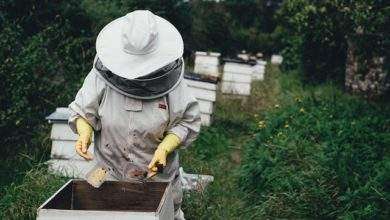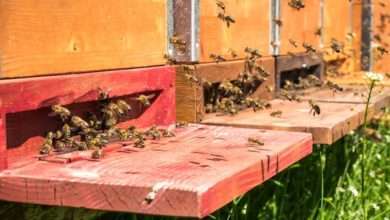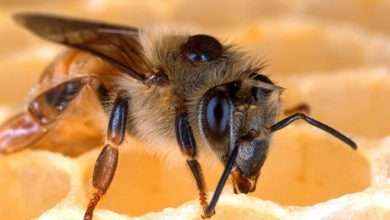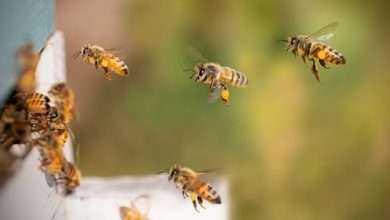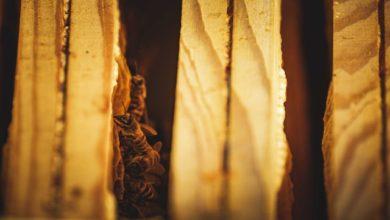Unlock the Secret to Maximizing Beekeeping Success with Bees Pollen Supplements
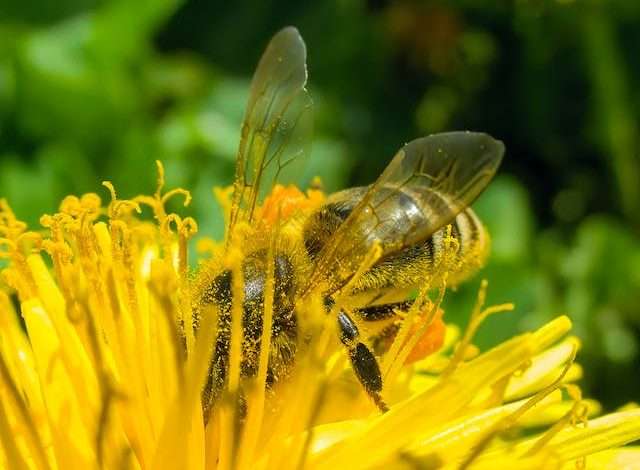
Bee pollen is an important and integral part of beekeeping. It is the source of honey and wax, and is used for creating propolis, sealing cracks in the hive, and providing food for juvenile bees.
With this being said, it is not only the beekeeper’s job to provide pollen to their bees but to make sure that bee colonies are getting the nutrients they need to stay healthy and productive. This is where bee pollen supplements come into play.
What Is Bee Pollen?
Bee pollen is a valuable material that bees collect from the flowers they visit. It is composed of tiny pollens, essential amino acids, minerals, and proteins. It’s like a superfood for bees as it contains all the nutrients needed for the wellbeing of the entire bee colony. Bee pollen is essential for the health of the bees, and beekeepers must ensure that their bees are getting it in sufficient quantities.
Benefits of Bee Pollen Supplements
Bee pollen supplements are a great way to provide extra nourishment and essential vitamins and minerals for bees. Here are some of the benefits of supplementing bees with bee pollen supplement:
- Improved productivity: Studies have shown that supplementing bees with bee pollen can increase bee productivity and honey production by up to 25%. This means that beekeepers will be able to reap the rewards of increased honey production and improved pollination services.
- Healthier bee colonies: Bee pollen supplements are packed with essential vitamins and nutrients that are vital for bee health. These nutrients help to keep bee colonies strong and healthy, as well as promoting healthy bee reproduction. This means that beekeepers will have fewer sick bees and have a stronger bee colony overall.
- Reduced stress: Bee pollen supplements are also known to reduce stress in bees. This is an important factor for beekeepers, as stressed-out bees are less productive and can cause harm to the bee colony as a whole.
- Increased pollination: Research has also shown that supplementing bees with bee pollen can result in improved pollination efficiency. This is an important factor for beekeepers, as better pollination can result in higher honey yields as well as improved pollination services for fruit and vegetable farmers.
- Brood Development and Queen Rearing: Bee pollen supplements have been shown to positively influence brood development, resulting in healthier larvae and pupae. This aids in the production of vibrant and productive worker bees. Additionally, for those interested in queen rearing, incorporating bee pollen supplements in the diet of your queen bees can enhance their reproductive capabilities, leading to stronger and more viable queen cells.
Choosing the Right Bee Pollen Supplement
Quality and sourcing are crucial when selecting bee pollen supplements. It is important to source high-quality, organic supplements from reputable suppliers. Bees are highly sensitive to their environment, and any contaminants in the pollen can have detrimental effects on their health. Therefore, opting for organic bee pollen supplements ensures that bees receive the purest and most beneficial nutrition.
Form of Supplement
Bee pollen supplements are available in various forms, including granules, capsules, and powdered options. Each form has its own set of advantages. Granules are the most natural form and can be easily consumed by bees. Capsules provide a convenient option and allow for precise dosage.
Powdered supplements, such as Ultra Bee, can be mixed with other beekeeping ingredients such as sugar syrup or pollen patties. Beekeepers must consider the preferences of their bees and select the form that works best for their colonies.
Storage and Shelf Life
Proper storage is essential for maintaining the nutritional value and extending the shelf life of bee pollen supplements. These supplements should be stored in a cool, dry place away from sunlight, moisture, and other potential contaminants. Storing them in airtight containers, such as glass jars or plastic bags, helps preserve their freshness.
It is also recommended to label the containers with the purchase date to ensure timely consumption and avoid using expired supplements.
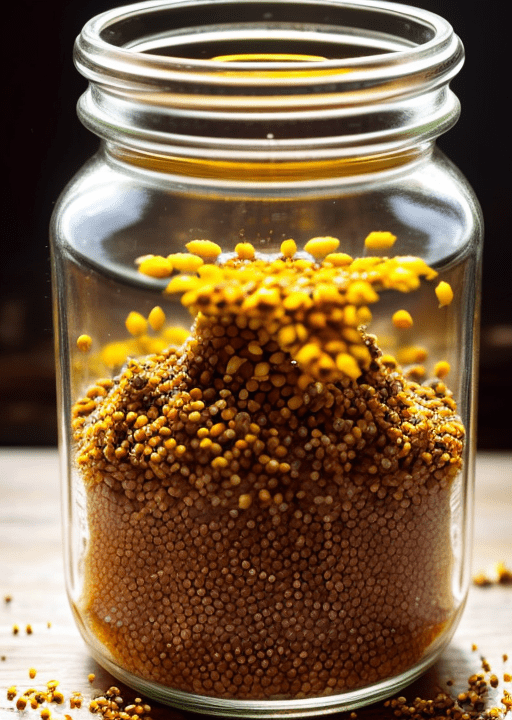
Dosage and Application Methods
Administering bee pollen supplements in the correct dosage and employing appropriate application methods is vital for their effectiveness. The dosage of bee pollen supplements varies depending on factors such as colony size, season, and specific nutritional needs.
It is important to follow guidelines provided by knowledgeable beekeeping resources or consult with experienced beekeepers to determine the right dosage for your colonies.
There are multiple application methods for bee pollen supplements. Some beekeepers prefer placing the supplements directly in the hive, using pollen traps or pollen feeders. Others prefer mixing the supplements with sugar syrup or creating pollen patties. Each method has its own advantages, and it is crucial to choose the one that suits your beekeeping practices and the specific requirements of your colonies.
Choosing the Right Feeders
Bee pollen feeders come in various designs, including open dishes, mesh trays, and trap hives. Each of these options has its advantages and considerations, so it is essential to select a feeder design that suits your beekeeping practices and minimizes the risk of robbing or contamination.
Here is a DIY Pollen Feeder in action:
Addressing Dearth Periods
- Identifying Dearth Periods: Dearth periods occur when there is a lack of floral resources in the environment, denying bees access to sufficient pollen. This can happen due to seasonal changes, urbanization, intensive agriculture, or natural factors. By being aware of these periods, beekeepers can proactively prepare and provide their bees with supplemental nutrition.
- The Role of Bee Pollen Supplements: Bee pollen supplements act as a lifeline for bees during dearth periods. These supplements are meticulously designed to contain a balanced mixture of proteins, vitamins, minerals, and beneficial enzymes that mimic the nutritional value of natural pollen. By offering these supplements, beekeepers can ensure that their bees have access to essential nutrients, preventing brood starvation and maintaining colony strength.
Conclusion
As a beekeeper, your main goal is to ensure the health and success of your honeybee colonies.
By unlocking the secret to maximizing your beekeeping success with bee pollen supplements, you provide your bees with the essential nutrients they need to thrive in any environment. The benefits are far-reaching, from improved overall health and productivity to enhanced brood development and immune system support.
Consider incorporating bee pollen supplements into your beekeeping routine and witness the positive impact they can have on the well-being of your precious honeybees.
Frequently Asked Questions (FAQ):
What is the role of bee pollen supplements in beekeeping?
- Bee pollen supplements serve as a nutritious addition to a bee’s diet. They support boosted immune systems, increase brood production, improve hive vitality, enhance pollen collection abilities, and even contribute to higher-quality honey production.
How does bee pollen benefit bees?
- Bee pollen is a nutrient-rich substance that helps strengthen the immune system of bees, protecting them against diseases and infections. It stimulates brood production, leading to larger colony populations, and improves overall hive vitality and productivity. Bee pollen also enhances bees’ ability to collect pollen during foraging forays, resulting in healthier and more efficient bee colonies.
How do bee pollen supplements support honey production?
- By improving the overall health and vitality of bee colonies, bee pollen supplements contribute to increased honey production. Bees fed with bee pollen supplements produce honey with higher nutritional value and superior quality. The supplements enhance the bees’ foraging abilities, leading to a more efficient collection of nectar and pollen, resulting in greater honey yields.
Are bee pollen supplements sustainable for beekeeping practices?
- Yes, incorporating bee pollen supplements aligns with sustainable beekeeping practices. By promoting the overall health and vitality of bee colonies, these supplements ensure the sustainability and resilience of honeybee populations. Their use supports the preservation of ecosystems and the ongoing pollination of plants, benefiting both the environment and agriculture.
Can bee pollen supplements replace natural pollen sources entirely?
- While bee pollen supplements can provide vital nutritional support during periods of pollen scarcity, it is crucial to maintain a diverse and natural diet for honeybees. Natural pollen sources offer a range of additional nutrients and contribute to their overall well-being. Bee pollen supplements should be seen as a beneficial addition rather than a complete replacement for natural pollen collection.
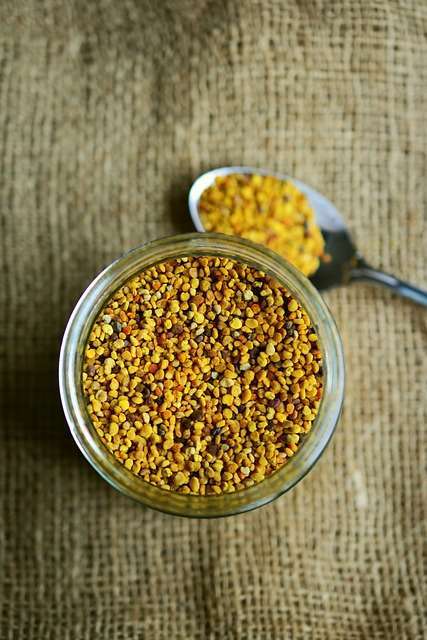
Do bee pollen supplements affect honey quality?
- When used responsibly according to recommended guidelines, bee pollen supplements should not negatively impact honey quality. Choosing supplements that are free from artificial additives and contaminants will help maintain the integrity of your honey production.
Can bee pollen supplements help prevent colony collapse disorder (CCD)?
- While bee pollen supplements alone cannot solve the complex issue of CCD, they can contribute to colony health and resilience. By providing the bees with a well-balanced diet rich in essential nutrients, you enhance their overall vigor and potentially reduce the risk of CCD.
Can bee pollen supplements improve queen bee production?
- Yes, bee pollen supplements can positively influence queen bee production. The nutritional boost from the supplements supports the bees during critical stages of queen rearing, facilitating healthier and stronger queens. Queen bees developed in colonies with proper nutrition are more likely to have successful mating and lead productive hives.
Are there any risks associated with using bee pollen supplements?
- Bee pollen supplements, when correctly administered, pose minimal risks to your bees. However, it is crucial to ensure that the supplements are free from contaminants and pesticides.
- Additionally, monitoring your colonies’ response to the supplements and adjusting quantities if needed will help maintain a balanced diet.
